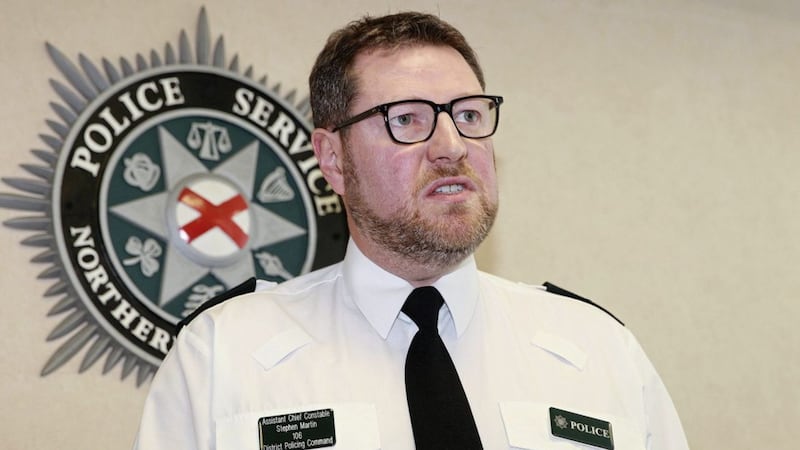IT'S fair to say that no-one saw the PSNI's strike against the INLA coming.
However, it is not the first time this year the group has been targeted by officers from the PSNI's paramilitary task force.
Arrests were made in Derry in March with further searches later in that month.
"There is a misconception in some quarters that the work of the Paramilitary Crime Task Force is focused only on loyalist paramilitaries," Assistant Chief Constable Stephen Martin of the PSNI Crime Operations Department said.
"Along with related operations in Derry/Londonderry in March (this shows) we will remove paramilitaries from all our communities in Northern Ireland."
Formed in 1974 by former members of the Official IRA, which had called a ceasefire two years earlier, the INLA was responsible for some of the most high-profile killings during the Troubles during its 24-year armed campaign.
It finally declared a ceasefire in August 1998, stating the following year that "there is no political or moral argument to justify a resumption of the campaign".
In 2009, the INLA formally declared it would pursue its aims through peaceful political means and began decommissioning its weapons.
However, since 2015 it has been one of five `priority groups' that the PSNI's Paramilitary Crime Task Force has been targeting.
Along with Action Against Drugs, it is one of two republican organisations in that cohort identified by the PSNI and MI5 in an assessment conducted in 2015 for the Northern Ireland Executive as part of the `Fresh Start' settlement.
"The 2015 assessment by PSNI and MI5 stated very clearly that the INLA structures remained in place and it continue to be heavily involved in extortion, paramilitary activity and involved in intimidation against people involved in drug dealing in the community."
The three loyalist groups also identified as still maintaining their paramilitary structure and being engaged in illegal criminal activity are the West Belfast UDA, the East Belfast UVF and the South East Antrim UDA.
In the last calendar year the task force has carried out 193 searches and 43 people have been charged by police or reported to the Public Prosecution Service.








